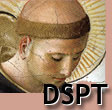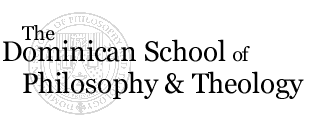

THE MASTER OF DIVINITY PROGRAM PROGRAM FOR LAY STUDENTS
In addition to the general academic and pastoral goals of the MDiv program, the program helps lay students prepare themselves for ministry in the Church. Academic courses foster their intellectual growth and ability to address the complex questions that may arise in contemporary ministry. Pastoral courses help them to develop their interpersonal skills and their ability to discern the ways the Spirit may be working in the lives of those whom they are called to serve. Candidates for lay ministry are encouraged to meet monthly to discuss their own experiences in lay ministry among themselves and with lay persons who have had broad ministerial experience. They are also encouraged to meet regularly with a spiritual director.Four-year course distribution Students may choose a distribution of courses over a four-year period instead of the normal three-year period. This option provides an additional 15 units of course work specifically designed to complement the 81 units required in the three-year M.Div. program.
Admissions Requirements Since the M.Div. program normally leads to the practice of ministry, its admissions requirements include not only standards of academic preparation and ability but also religious, moral and other personality qualifications consonant with the practice of ministry in the Roman Catholic tradition. Applicants preparing for lay ministry who are not associated with a religious or diocesan formation program must submit a statement of purpose regarding their interests and goals in graduate studies, and one of their letters of recommendation must testify to their potential for such ministry. Two of their letters of recommendation should be academic recommendations.
The courses in the M.Div. program presuppose a basic foundation in philosophy as well as an introduction to Scripture such as that provided in the DSPT undergraduate program. Where a deficiency exists, the Admissions Committee may propose a remedy by assigning prerequisites.
Degree Requirements The Master of Divinity degree represents the completion of a three-year (six semester) program of studies involving 81 units of academic and field education courses. Maximum time permitted for the completion of the M.Div. program is six years, computed from the date of initial registration in the program. Students are required to maintain a 2.3 grade point average.
Course requirements The Master of Divinity program requires the completion of 81 units of course work including 69 units of required courses and 12 of electives. The four-year option provides 96 units of course work over a four-year period, including 81 units of required courses and 15 units of electives. Students must take at least one-third of the total required course work from DSPT and are encouraged to take one-third from outside DSPT. From the following list of course offerings, students in the three-year program take all the courses under Historical Theology (6 units) and Moral Theology (12 units), four of the Scripture courses (12 units, at least six of which must be from the New Testament), and the courses under Dogmatic Theology not marked with an asterisk (15 units). Students following the four-year option take all the courses under Historical Theology (6 units), Dogmatic Theology (24 units), Moral Theology (12 units) and five courses in Scripture (15 units, six in Old Testament and nine in New Testament). Students take 8 courses in Pastoral Theology (24 Units).
| Historical Theology | History of Christianity I (3) History of Christianity II (3) |
| Scripture | Old Testament Pentateuch (3) Prophets, Wisdom, or thematic course offering (3) New Testament Synoptic Gospels (3) Gospel of John (3) Soteriology of St. Paul (3) |
| Systematic Theology | Dogmatic Theology Revelation and Theology (3) The One, Creator God (3)* Trinity (3) Christology I (3) Christology II* (3) Sacraments of Initiation (3) Sacraments of Healing and Vocation (3) Ecclesiology* (3) Moral Theology Christian Anthropology (3) Fundamental Moral Theology (3) Justice (3) Christian Faith, Hope, and Love (3) |
| Pastoral Theology | Liturgy (3) Preaching (3) Canon Law: Intro / Marriage (3) Pastoral Counseling (3) Field Education (9) |
| *Required only of students following the four-year distribution of courses. | |
Thomistic Specialization The particular philosophical and theological tradition of the Dominican Order is that of St. Thomas Aquinas. DSPT, therefore, offers a Thomistic specialization in the M.Div. program by emphasizing his thought and making use of his writings where appropriate in the eleven courses in systematic theology listed above.
Equivalent Courses Courses in other areas of theology will be considered equivalent to required DSPT courses if they cover substantially the same material envisioned in the DSPT course requirement.
Systematic theology courses in the DSPT M.Div. curriculum contain the following elements:
- a general introduction to the subject
- its sources in Scripture, Tradition and the teaching of the Church
- important approaches to the subject, both historical and modern
- the thought of St. Thomas on the subject.
Field Education Field Education is an integral part of the M.Div. program. Students may enroll in Field Education courses during the entire period of their training. A variety of Field Education courses are offered each year in order to assist students in developing a balanced understanding of the requirements of pastoral ministry.
Field Education consists of three components:
- the actual field ministry
- supervision
- theological reflection
All three components will be credited in accord with the following norm: 40 hours is equivalent to one credit hour. The student is expected to move gradually from Introductory Field Education to Advanced Field Ministry, to the final phase of Field Education, the Art of Pastoral Supervision. Two alternatives to advanced field education may be chosen: Clinical Pastoral Education (CPE) during the summer, or a residency year (i.e., a year of supervised pastoral work). Students should consult with the Director of Field Education regarding the procedures for choosing these alternatives.
Elective courses DSPT and GTU offer a wide variety of courses from which students may choose according to their particular needs and interests. Electives are an integral part of a student's regular program and should normally be related to theology. However, up to six units of any combination of the following languages may be used to fulfill elective requirements in the M.Div. program: Hebrew, Greek, intermediate or advanced Latin, and intermediate or advanced Spanish.
Online Application Menu
Master of Divinity Application Menu